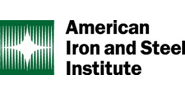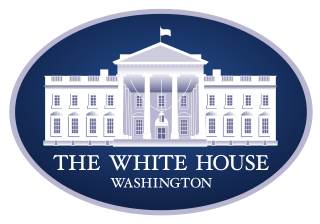Trade Cases

CAMMU Calls on Secretary Raimondo to End Section 232
Written by David Schollaert
March 18, 2021
The Coalition of American Metal Manufacturers and Users (CAMMU) is appealing to the Department of Commerce (DOC) to terminate Section 232 tariffs and quotas on imported steel and aluminum, in a followup to similar demands directed at the Biden administration on Feb. 10.
In a March 15 letter to Commerce Secretary Gina Raimondo, CAMMU–which claims to represent more than 30,000 companies and one million workers in downstream metals-consuming sectors–said it is dismayed by the secretary’s support of Section 232 and her comments suggesting that the “tariffs have been effective.”
“There is, in fact, scant evidence that the Trump steel and aluminum tariffs have helped the domestic steel industry, as the sector continues to close plants and shed jobs, but numerous published studies provide evidence of the damage caused by these tariffs to our nation’s economy, its small manufacturing businesses, employment in the manufacturing sector, and to carefully constructed supply chains,” the group said in the letter. “The Trump tariffs have increased the costs of goods manufactured in America when compared to overseas competitors whose governments do not impose an artificial tax on their inputs. If these tariffs are not terminated, the result will be lost business for U.S. manufacturers and lost U.S. jobs.”
The letter goes on to provide an overview of data supporting CAMMU’s call for the immediate termination of the Section 232. In it, they claim that (1) the tariffs have protected only a small subset of domestic industries at the expense of the economy and the broader 6.2 million Americans who work in steel-related sectors. As a result, (2) a number of steel products are not readily available, triggering extended lead times. They go on to note that (3) “the cost burden of these tariffs are borne by U.S. manufacturers and consumers”, while (4) the domestic steel industry is not making needed investments to modernize its facilities and (5) driving the cost of retaliation by U.S. trade partners higher.
In their bid to have Secretary Raimondo and the DOC terminate Section 232 tariffs and quotas on imported steel and aluminum, the group pointed out that the DOC’s exclusion process has been unreliable and has hindered U.S. steel- and aluminum-using manufacturers by underscoring the findings of the Government Accounting Office’s September 2020 report. The report discovered 6,548 instances where exclusions were denied despite evidence of injury, and detailed the exclusion delays, finding that “Commerce did not decide about three-quarters of requests within its established timeliness guidelines, taking more than a year to decide 841 requests.”
“The delays in obtaining information on whether Commerce will grant exclusions has caused significant problems for U.S. manufacturers. If they cannot determine the price and/or delivery time for an important input like steel and aluminum, they cannot provide their customers the certainty they require,” CAMMU said.
Section 232 continues to elicit strong emotions on both sides of the issue. Some contend that U.S. mills have been able to invest billions of dollars in adding new capacity and upgrading existing mills, while others say the downstream ripple effect, including historically high steel prices, has crippled steel- and aluminum-using manufacturers in unprecedented ways. Nevertheless, there is consensus that some changes to the Trump-era tariff system are on the horizon, but they may not come as quickly as some would like as Section 232 is not currently a high priority for President Biden.
By David Schollaert, David@SteelMarketUpdate.com

David Schollaert
Read more from David SchollaertLatest in Trade Cases

AISI: USMCA able to handle US, Mexico trade dust-up
The USMCA should be strong enough to handle trade disagreements on steel between the US and Mexico, according to the American Iron and Steel Institute’s (AISI’s) Kevin Dempsey.
Steel cylinders from India face US import duties
Non-refillable steel cylinder imports from India are subject to new antidumping and countervailing duties (AD/CVD).

Canadian steel industry calls for tariffs, evolution of trade tools
Following the announcement earlier this week that the US will hike import tariffs on Chinese goods, including steel and aluminum, Canada’s steel industry called on its government to consider similar tariffs.

Canada considers standard pipe duties in expiry review
The Canada Border Services Agency (CBSA) has completed its portion of an expiry review of the antidumping duty orders on welded standard pipe from Pakistan, the Philippines, Turkey, and Vietnam.

Biden hikes tariffs on Chinese goods, including steel and aluminum
The Biden administration announced a series of actions on Tuesday targeting China’s "unfair" trade policies. These actions will, among other things, make imports of steel and aluminum from the Asian nation even more prohibitive.
